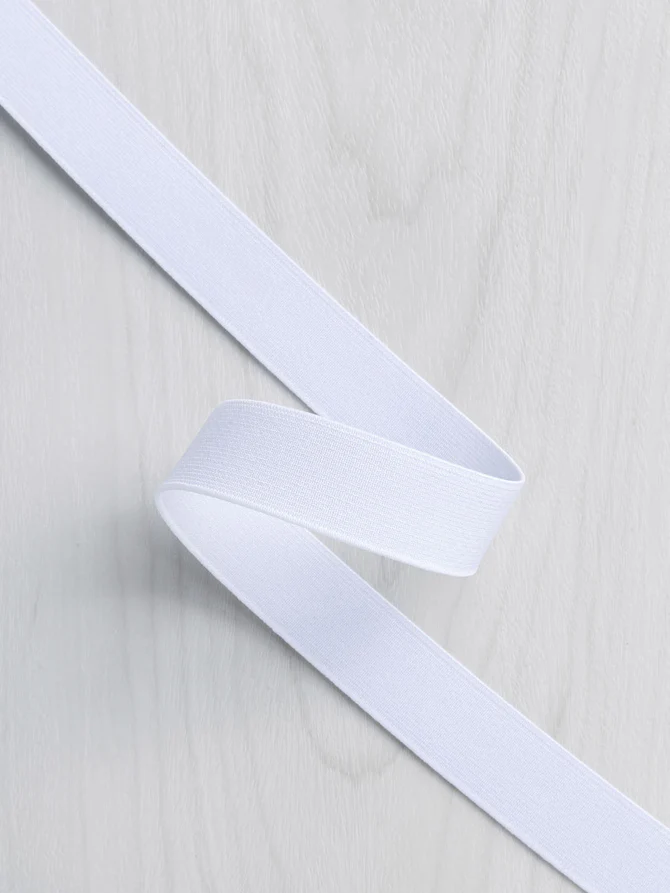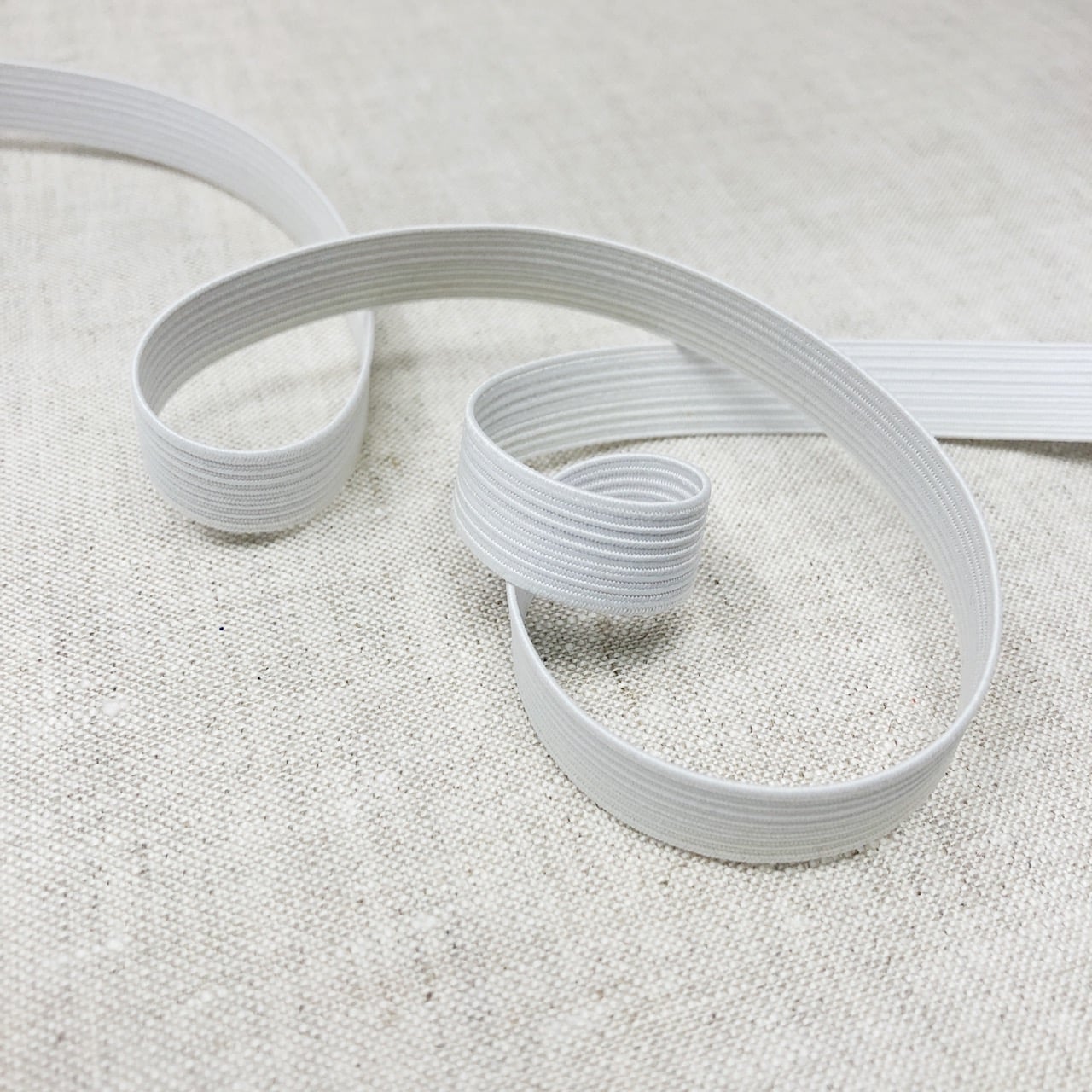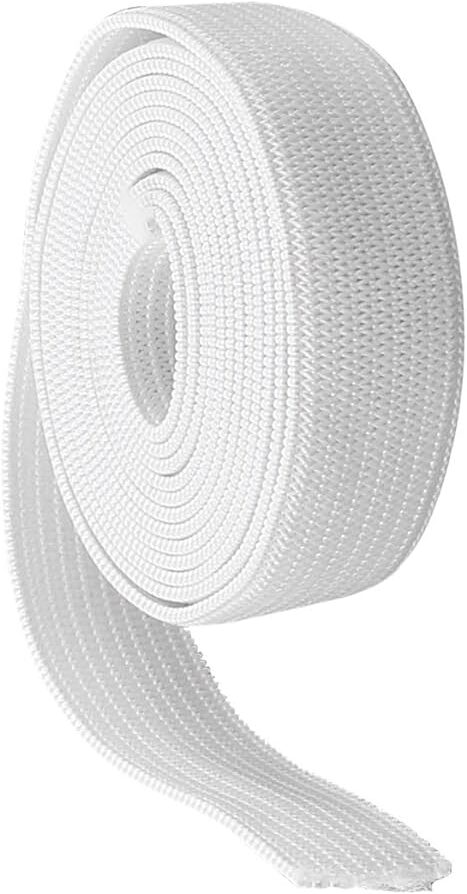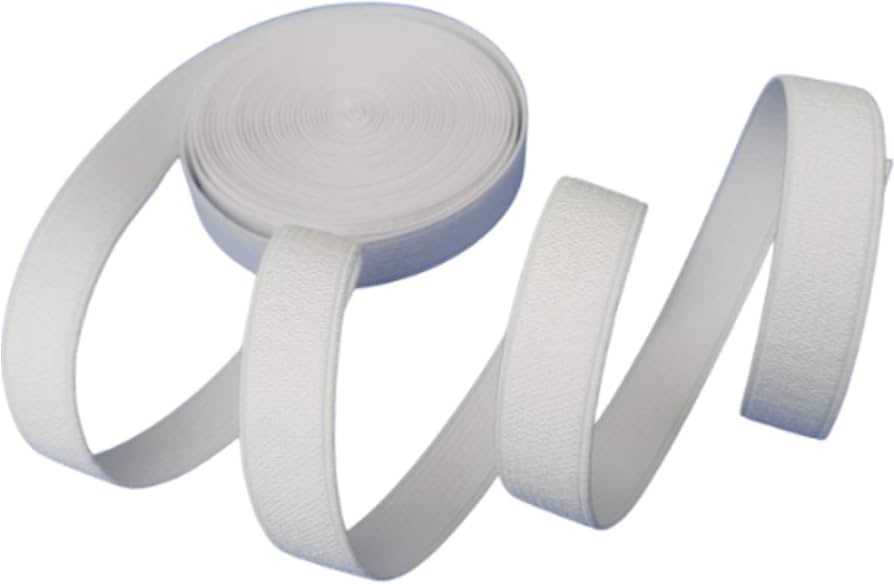
Sewing Elastics
Comfort and excellent recovery! Shop the perfect elastic band for your next sewing project. Find knitted elastic, braided elastic, flat elastic, and no roll elastic in various sizes ideal for waistbands, sleeve and leg bands, necklines, underwear, sportswear and even swimwear!
All Types of Elastic on Wholesale rate
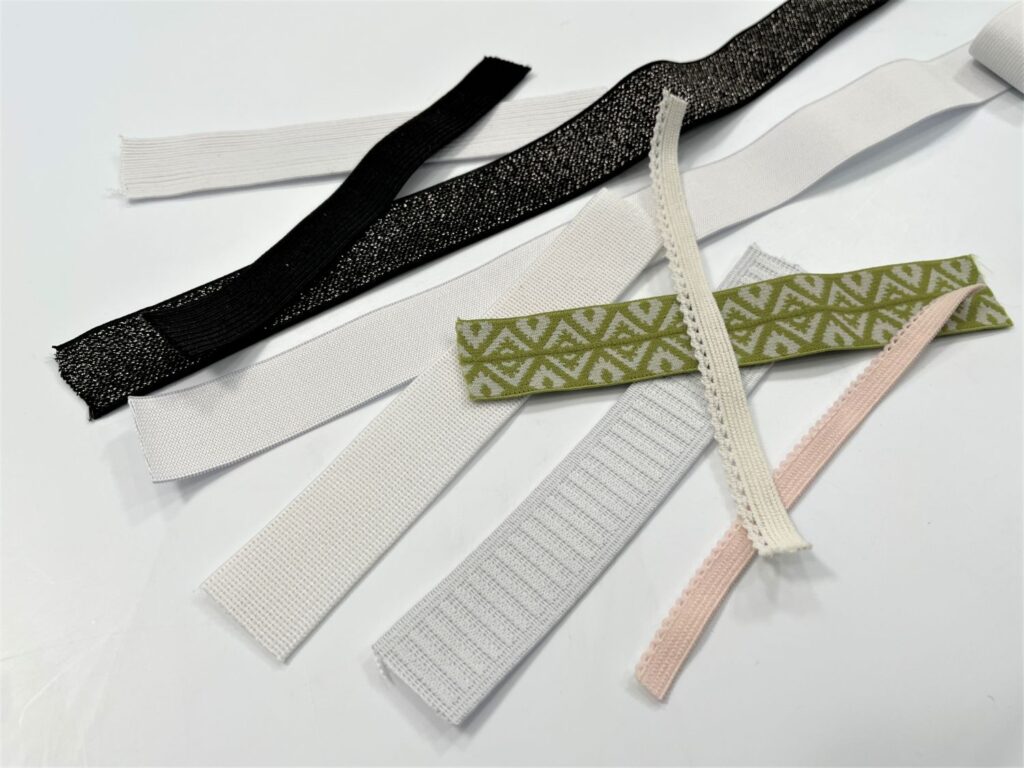
There are a lot of types of sewing elastic out there and knowing how to pick the best elastic for your sewing projects will affect the quality and final results of whatever you are making.
In this post i'm going to go over:
> different types
> what each one looks like
> how to use each one
All are used in different applications and serve a specific purpose.
They come in all kinds of widths, from 1/4 inch to 3 inches and up. Your pattern will typically specify which width to use, but in general, thinner ones are used for things like swimwear and necklines, while wider ones are used for waistbands for skirts and pants.
Types of Elastic Guide
Here is the table showing the different types & when you can use them.
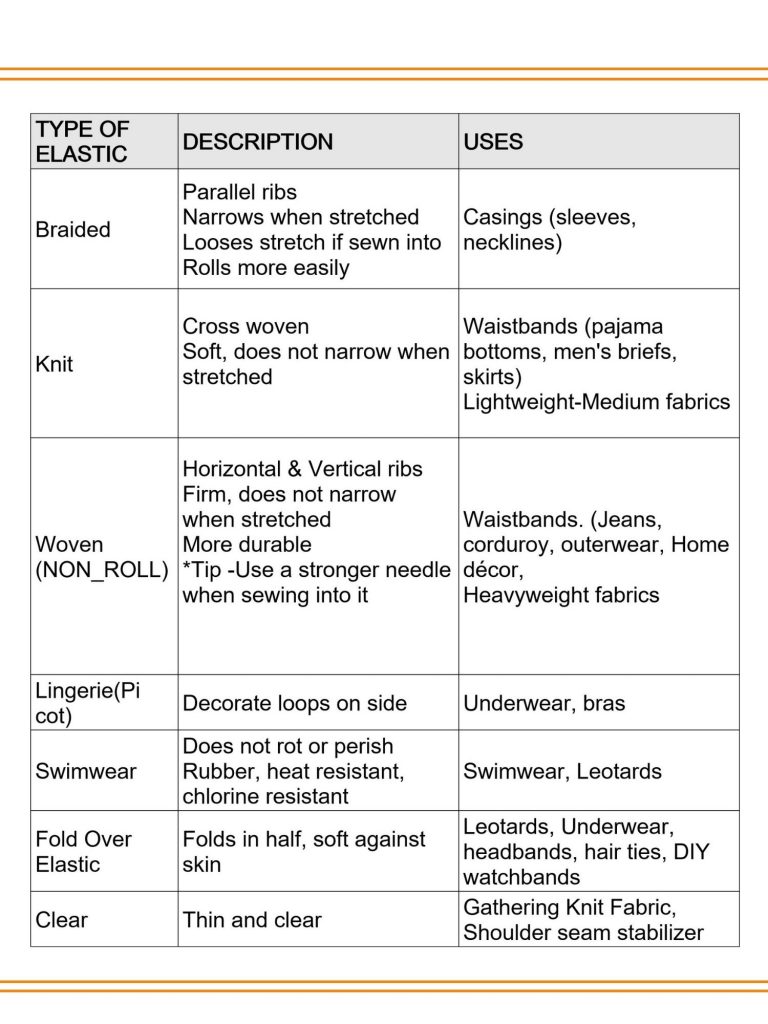
BRAIDED
Description
- Parallel ribs
- Narrows when stretched
- Looses stretch if sewn into
- Rolls more easily
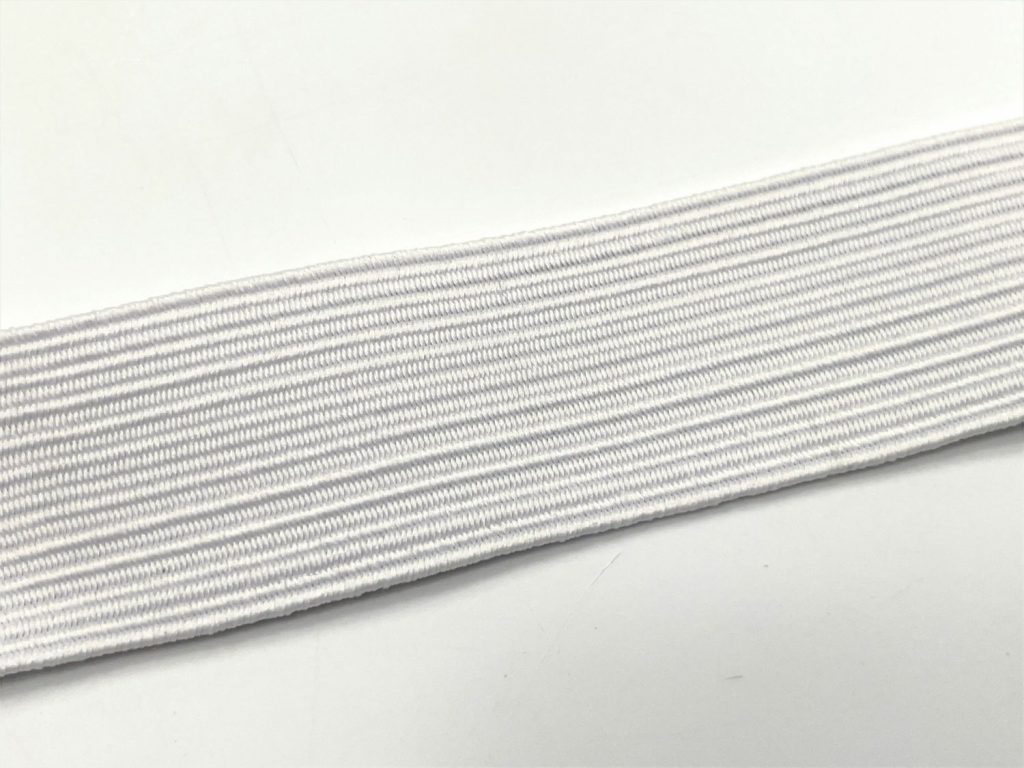
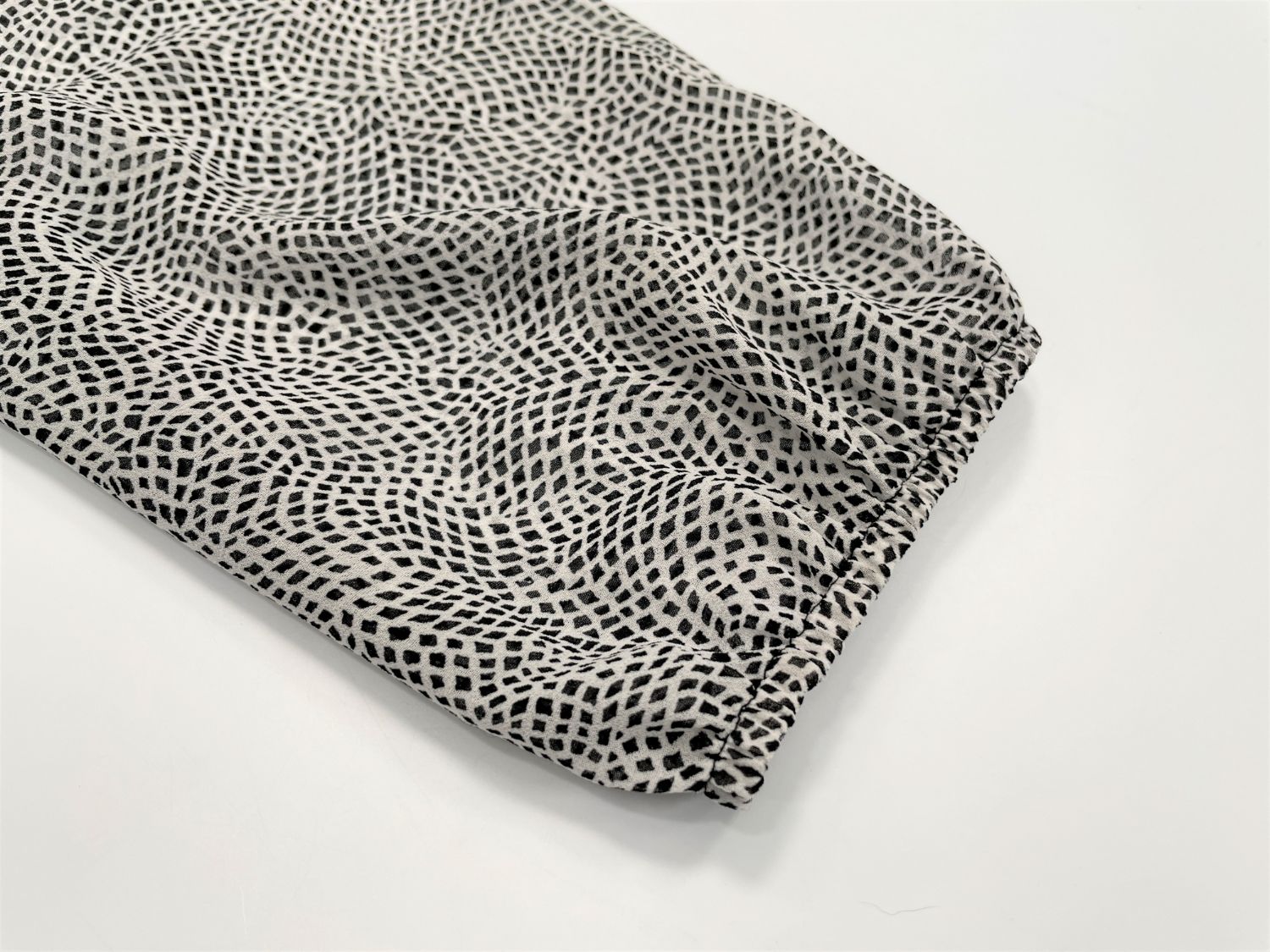
Uses
Sleeve and Neckline Casings
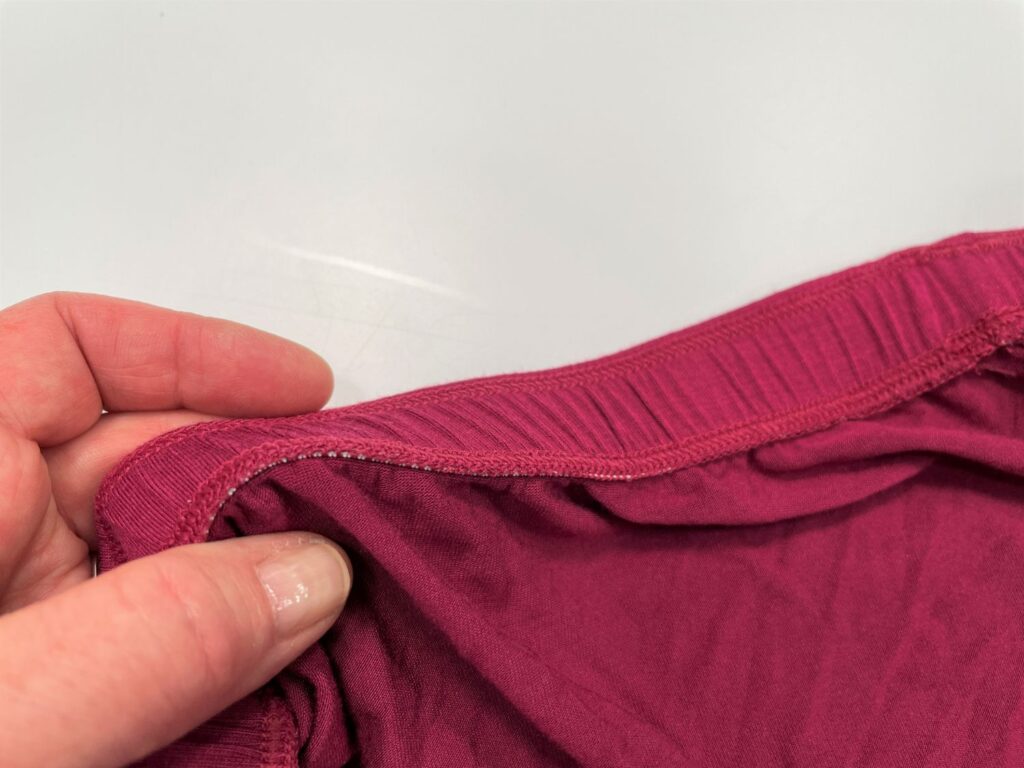
Uses
Waistbands (pajama bottoms, men’s briefs, skirts)
Lightweight-medium fabrics
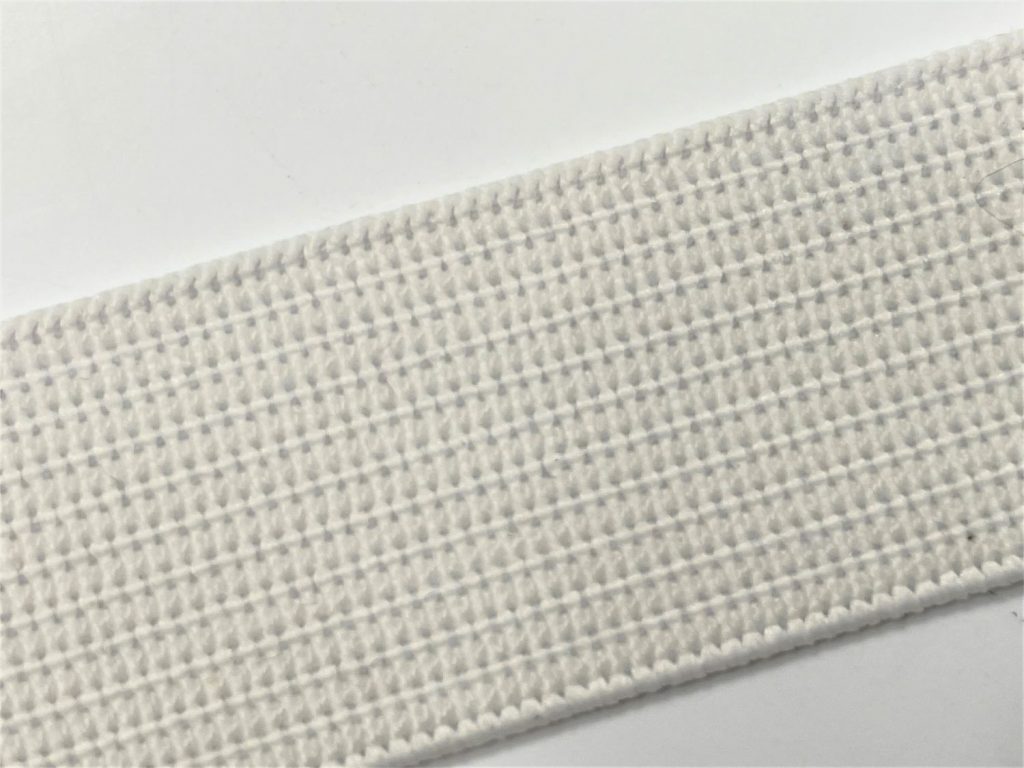
KNIT
Description
- Cross woven
- Soft to the touch
- Does not narrow when stretched
WOVEN
Description
- Horizontal & vertical ribs
- Firm
- Does not narrow when stretched
- More durable
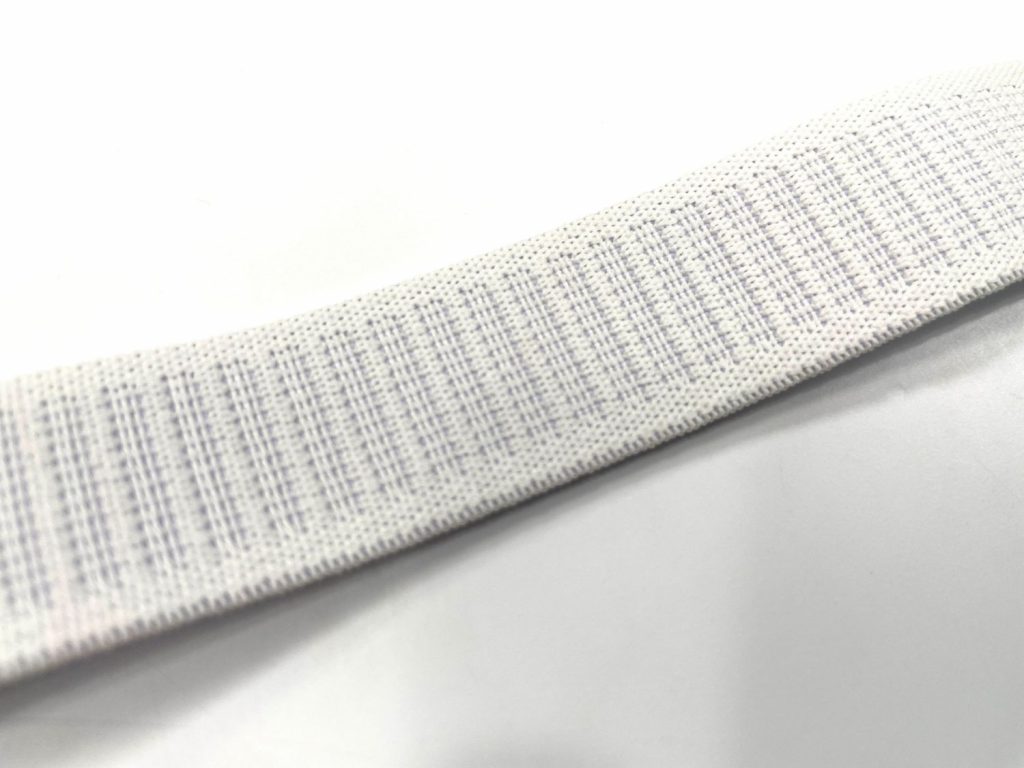
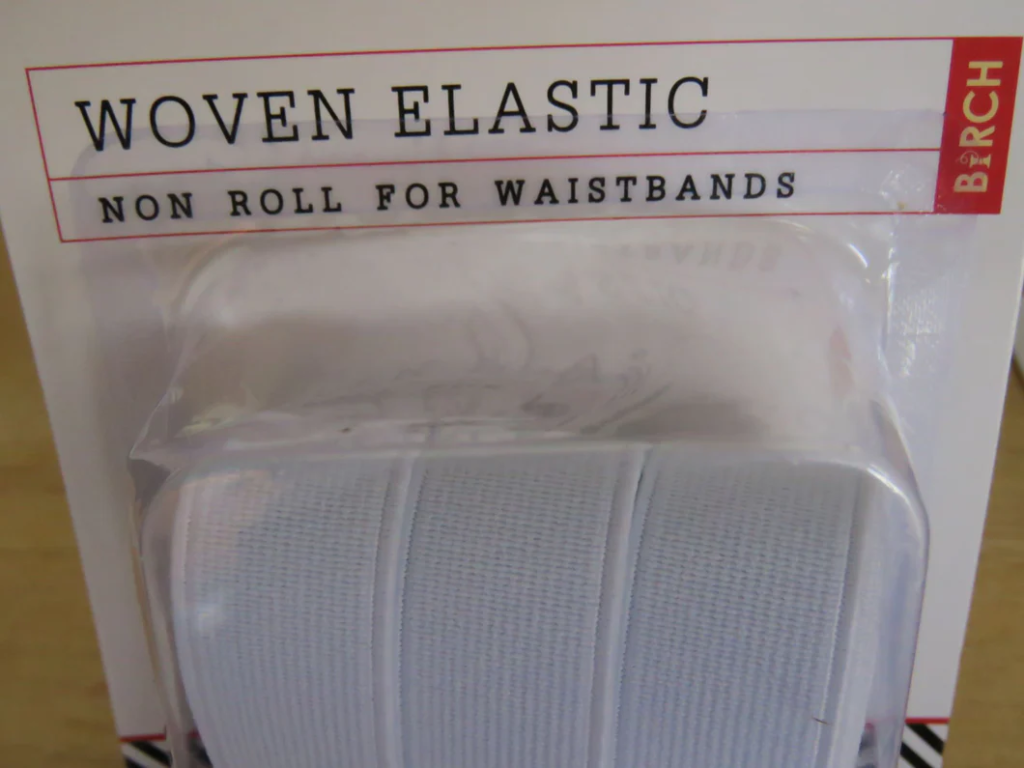
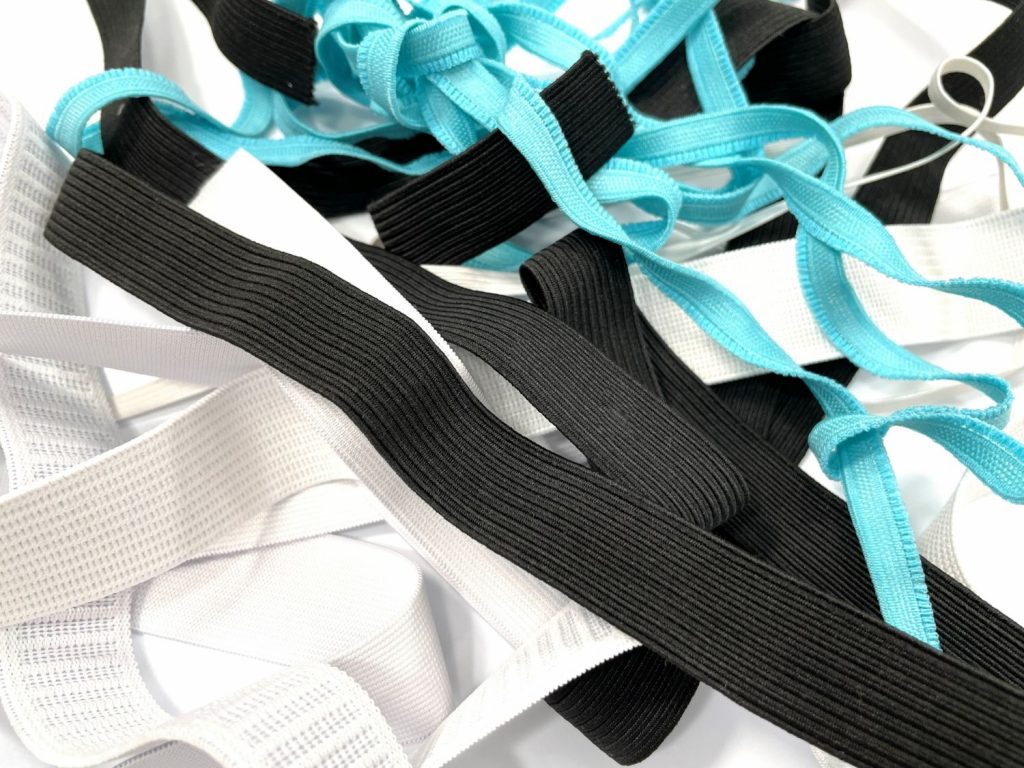
Extra Tips
Picking the Right Type
- First, consider if you will be sewing through the elastic or placing it in a casing. Remember, the braided and woven elastic doesn’t do as well being sewn through.
- Knit or braided types are better for lighter fabrics, while woven is better for heavyweight fabrics.
- Use specialty elastics like lingerie, fold-over elastic, and clear elastic for your projects that have special requirements.
Picking the Best Size Elastic
- Pick the size based on the size of the casing or insertion area and the location on the garment the elastic will be.
- Neckline elastic needs to be much thinner than waistband elastic, for instance! Your pattern will most likely recommend the width needed.
- Don’t cut it lengthwise. You’re much better off just getting one that is the right width.
Cutting the Length
- Test stretch your elastic to check how much it stretches and if it recovers well.
- You may need a shorter length of braided elastic to accomplish the same stretch as a knitted elastic.
- Thinner elastics stretch more than wider ones, so take this into account when cutting your length.
- Use a safety pin to join elastic and test before cutting.
.
I hope you found this helpful.
Please send me a note if you have any questions while choosing the elastic for your projects.
